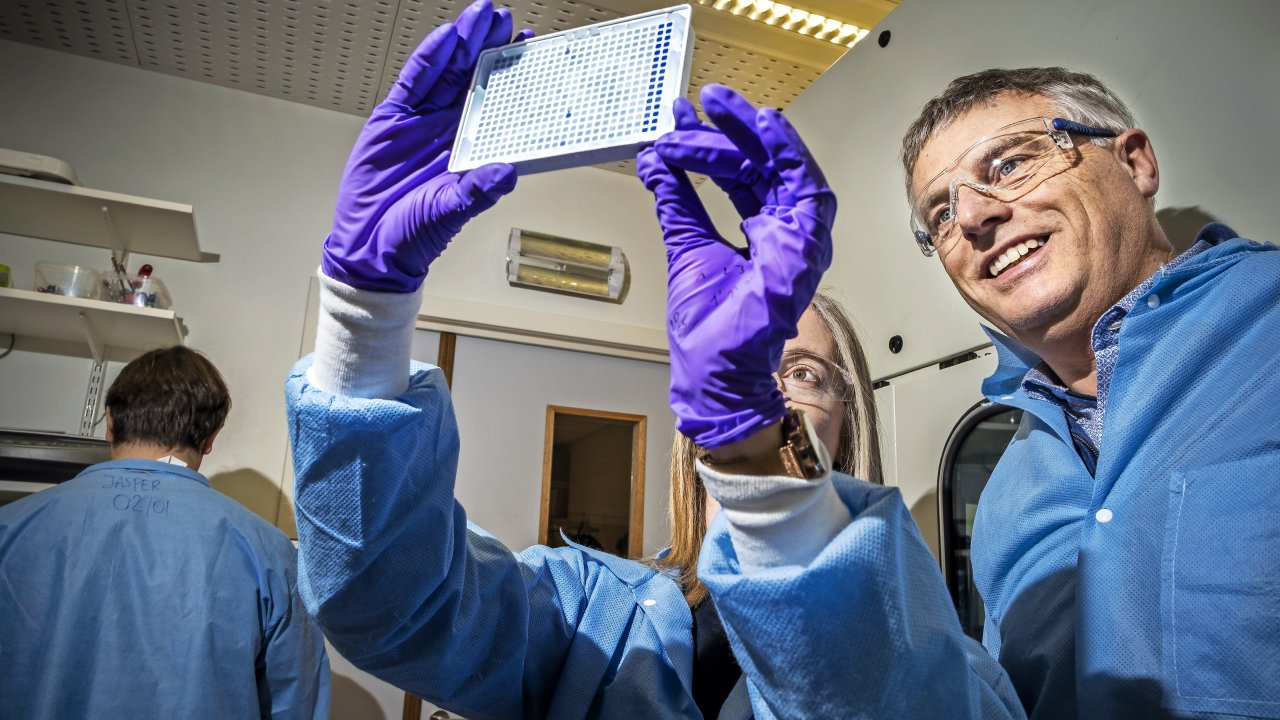Since there is no vaccine against Covid-19, quarantine currently seems to be the only solution for governments to combat the spread of the coronavirus. The speed with which the virus is spreading, and the high death toll in Italy, is increasing panic and is egging the pharmaceutical industry on.
The race for a remedy has also reached Belgium – in the top three of vaccine manufacturers in Europe – with studies at UGent and KU Leuven. It was announced Monday that the latter has a prototype of a possible vaccine ready. Virologist Johan Neyts is “hopeful” about the results of the mouse tests, which are expected in about ten days.
Eternity
But despite the urgent – or competitive – atmosphere, a first vaccine is expected at the earliest within a year and a half, according to the World Health Organization (WHO). Compared to the speed at which corona circumnavigates the globe, it seems like an eternity, but in the pharma world it would be an absolute record.
It usually takes about ten years to develop a vaccine, says Corinne Vandermeulen, head of the Center of Vaccinology at KU Leuven. “The first phase, preclinical, where a vaccine is developed in the lab and then tested on animals, takes two to four years. The clinical phase, which is tested on humans in several stages, can last five to eight years. Then you have to submit an application for the vaccine, which must be approved, which often takes another year.”
Zika
The development of a vaccine for the Zika virus, which was spread via mosquitoes in 2015, is the closest in speed. The first tests could take place after seven months of development, but the epidemic died out before the clinical phase could begin. That memory raises questions about the usefulness of such a race, just like the 2003 SARS scenario. That virus, also a member of the corona family and often compared to Covid-19, sparked worldwide panic, but after four months the World Health Organization indicated that it was under control.
Vaccine development was then halted. A missed opportunity, according to Neyts. “If such drugs had been developed at the time, we could have overcome the current crisis faster and avoid an economic mess. The coronaviruses family is quite small. We now know of six or seven. Developing a drug would probably have cost 200 to 300 million euros at the time. Ridiculous figures compared to the economic impact of the crisis now.”
Trust
The fact that big names in the pharmaceutical world, such as Sanofi, Gilead, Johnson & Johnson, Inovio and Moderna, are developing a vaccine gives the impression that the industry still believes in this.
Johan Van Hoof, worldwide head of vaccines at Janssen Pharmaceutica, acknowledges the risk. “We are working with Janssen on a vaccine that is now being tested on mice. The first clinical trials are scheduled for October, with results hopefully in January 2021. So we have to think long-term and that indeed means great uncertainty. We want to anticipate when corona will return.”
This article was originally published in Dutch by De Tijd on 9 March 2020.
Header image: Virologist Johan Neyts has developed the prototype of a possible vaccine (© Dieter Telemans).


